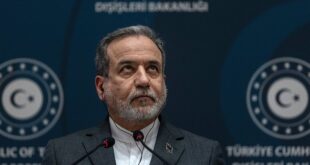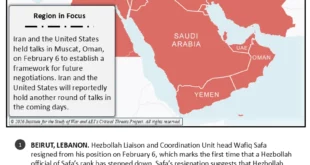EDINBURGH, Scotland – Defense Secretary Robert Gates is asking European allies for more troops to help stabilize Afghanistan, where the government is weak, the insurgency is relentless and casualties are mounting.
He got encouragement Thursday from a reliable U.S. ally — Britain.
Success in Afghanistan will require a significant and concerted international effort, said British Defense Secretary Des Browne as NATO defense and foreign ministers from countries operating in the south of Afghanistan gathered in Edinburgh for a conference. In southern Afghanistan, Taliban insurgents have increased attacks in the 18 months since NATO took command of the war.
“We must give the Afghan authorities the support they need to deliver the kind of success that we all recognize is vital, not just for security in Afghanistan, but for security in the wider world,” Browne said in a statement.
Browne just returned from a visit to Afghanistan and praised the work of military forces there.
“But military power can only ever be part of the solution,” he said. “We must build on our hard-won military gains and go further to help the people of Afghanistan to provide their own security, governance and economic development.”
During talks with allied defense and diplomatic officials, Gates is seeking an overall strategy for Afghanistan that could be adopted by the leaders of NATO governments at a summit next April. But opinions differ within NATO about whether such a plan is needed. No final decisions on the way forward were expected in Edinburgh.
Gates has been trying to build a sense of urgency about the country’s troubled south, push a strengthening of the central government in Kabul and foster economic development that does not revolve around the illicit drug trade.
Gates cautions that the gains achieved in Afghanistan over the past six years are at risk of being lost, unless the United States and its NATO allies carry out comprehensive military, economic and diplomatic solutions.
Along with other U.S. officials, he has expressed concern that much of Europe has lost sight of the purpose of fighting in Afghanistan, whose former Taliban rulers gave sanctuary to al-Qaida leaders, including Osama bin Laden, in the years before they carried out the terrorist attacks of Sept. 11, 2001.
Gates wants NATO to adopt and publish a short statement that would spell out briefly and plainly why the war is important, what U.S. and allied troops are doing there and how they can help the Afghan government.
The United States has about 26,000 troops in Afghanistan; together, NATO members other than the U.S. have a similar total. Britain is the largest non-U.S. contributor, with about 7,800 troops. Gates wants the Europeans to provide more troops — about 3,500 trainers for the Afghan police, plus additional mentors for the Afghan army, 16 helicopters and at least three battalions of ground forces.
There are signs of improvement in Afghanistan, NATO’s leader said Friday.
“I assure you that reconstruction and development is going on,” NATO Secretary-General Jaap de Hoop Scheffer said during a visit to Tokyo to meet with Japanese officials. “Let’s not see the picture totally blur by the Taliban making roadside bombs.”
He added, however, that withdrawal from Afghanistan in the near future was out of the question.
“Afghanistan is not a commitment that you enter into for two or three years,” he said. “Developing that nation will take a generation, or generations
 Eurasia Press & News
Eurasia Press & News


